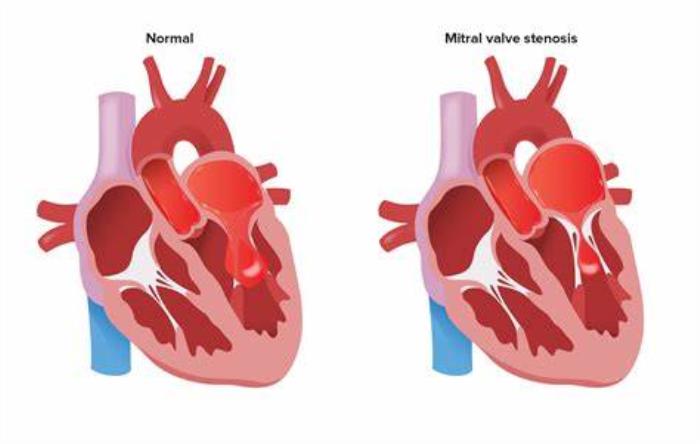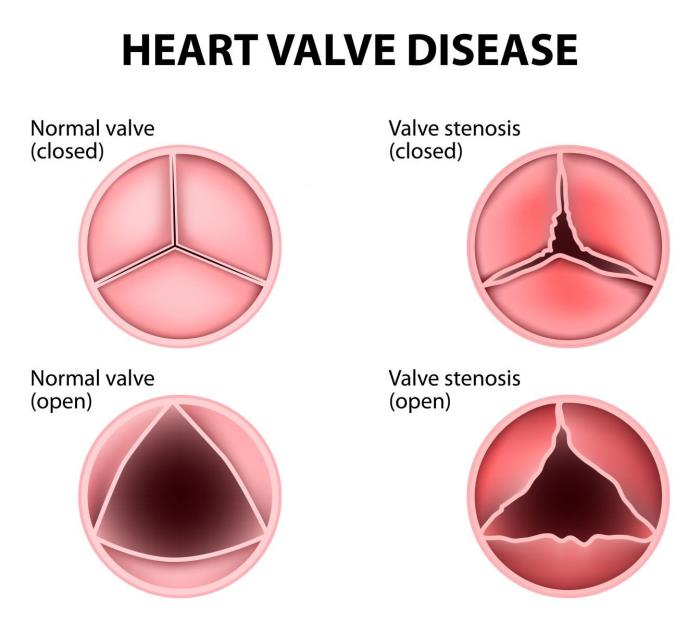Mitral valve disease is a condition that affects the valve located between the left atrium and left ventricle of the heart. This valve ensures proper blood flow, preventing blood from leaking backward into the atrium. When the mitral valve becomes damaged or dysfunctional, it disrupts this flow, leading to various symptoms that affect the quality of life. Recognizing these symptoms early on can lead to timely medical intervention, potentially preventing further complications.
What is Mitral Valve Replacement and When is it Needed?
Mitral valve replacement is a surgical procedure to replace a damaged mitral valve with either a mechanical or biological valve. This procedure is often necessary when the valve is severely narrowed (mitral stenosis) or leaky (mitral regurgitation), conditions that can make the heart work harder to pump blood and lead to serious health issues over time. Replacement is typically recommended when symptoms become severe or when the valve damage leads to significant strain on the heart, making it difficult for patients to carry out their daily activities without discomfort.
Common Causes Leading to Mitral Valve Damage
Several factors can lead to mitral valve damage, including congenital defects, age-related degeneration, infections like rheumatic fever, or other heart conditions. Rheumatic heart disease is a common cause, especially in regions with limited access to preventive healthcare. Endocarditis, an infection of the heart’s inner lining, can also damage the mitral valve. Additionally, conditions like mitral valve prolapse can weaken the valve, leading to regurgitation and the need for eventual surgical intervention.

Shortness of Breath: A Primary Symptom of Mitral Valve Issues
Shortness of breath, especially during physical activity or while lying down, is often an early sign of mitral valve problems. As the mitral valve becomes less effective, fluid can build up in the lungs, making it difficult to breathe comfortably. This symptom can range from mild to severe, depending on the extent of valve damage, and it’s often one of the first indications that the heart is under strain due to mitral valve disease.
Fatigue and Weakness: When Daily Tasks Feel Overwhelming
Patients with mitral valve disease may experience persistent fatigue and weakness, even after minimal exertion. This occurs because the heart’s reduced efficiency in pumping blood results in decreased oxygen delivery to the body’s tissues. As the valve deteriorates, this symptom can worsen, making it difficult for individuals to perform regular activities without feeling exhausted.
Swelling in the Legs, Ankles, or Feet: A Sign of Fluid Retention
Swelling, particularly in the lower extremities, can indicate that mitral valve disease is affecting the heart’s ability to circulate blood effectively. When the heart struggles to pump blood, fluid may start to accumulate in the tissues, leading to noticeable swelling in the legs, ankles, or feet. This fluid retention, known as edema, is a sign that the heart is not functioning optimally and requires medical attention.
Chest Pain or Discomfort as a Warning Sign
Chest pain or discomfort can be a distressing symptom of mitral valve disease. While it’s not always present, when it occurs, it may indicate that the heart is working harder than usual or that blood flow to the coronary arteries is compromised. This pain can vary in intensity and might feel like pressure, tightness, or a general discomfort in the chest area. Experiencing chest pain is a serious sign that should prompt immediate evaluation by a healthcare provider.
Heart Palpitations: Recognizing Irregular Heartbeats
Heart palpitations, or irregular heartbeats, can be a significant symptom of mitral valve disease. They may feel like a fluttering or pounding sensation in the chest and can occur due to blood flow disturbances caused by valve dysfunction. Recognizing these palpitations early is crucial, as they may indicate the need for further evaluation and potential treatment.
Persistent Cough, Especially When Lying Down
A persistent cough, particularly one that worsens when lying down, can signal fluid buildup in the lungs due to mitral valve problems. This symptom may arise as the heart struggles to pump efficiently, leading to congestion. If a chronic cough accompanies other symptoms like shortness of breath, a cardiac evaluation may be necessary.
Dizziness or Fainting Episodes: When to Seek Medical Attention
Dizziness or fainting episodes could be linked to mitral valve disease if the heart is unable to maintain a steady blood flow to the brain. When such symptoms persist, it’s essential to seek medical advice to rule out mitral valve-related issues, as these can indicate a more severe impairment of heart function.
Rapid Weight Gain Due to Fluid Retention
Rapid, unexplained weight gain may occur in mitral valve disease due to fluid retention, particularly if the heart cannot effectively circulate blood. This can lead to swelling in the legs and abdomen. Monitoring weight and reporting sudden increases to a healthcare provider can help detect worsening valve issues.
Difficulty Breathing When Exercising or Lying Flat
Shortness of breath, especially during physical activity or while lying flat, is a common symptom of mitral valve disease. It may arise from fluid congestion in the lungs, limiting oxygen intake. Persistent breathing difficulties warrant a medical evaluation to assess the valve’s function and determine if further intervention is needed.
How Mitral Valve Issues Can Affect Overall Heart Function
Mitral valve disease can significantly impact heart function, affecting blood flow and potentially leading to conditions such as heart failure. The valve’s inefficiency may cause the heart to work harder, leading to muscle fatigue and additional complications. Early detection and treatment can help preserve heart health and prevent further deterioration.

Recognizing Symptoms of Left-Sided Heart Failure
Left-sided heart failure is a possible outcome of mitral valve disease, characterized by symptoms such as fatigue, shortness of breath, and fluid retention. Recognizing these symptoms early is critical, as timely intervention can improve quality of life and reduce the progression of heart failure associated with mitral valve issues.
The Role of Heart Murmurs in Diagnosing Mitral Valve Problems
A heart murmur is often the first sign of mitral valve disease, detected during a routine examination. The murmur results from turbulent blood flow across the abnormal valve. While not all murmurs indicate serious issues, further tests, such as an echocardiogram, can confirm the presence and severity of mitral valve disease.
Symptoms Worsening Over Time: When to Consider Surgery
In cases of mitral valve disease, symptoms may progressively worsen, impacting daily life and overall health. When medication no longer provides relief and symptoms like shortness of breath and fatigue become more intense, surgery may be considered to repair or replace the mitral valve and restore better heart function.
Differences in Symptoms for Acute vs. Chronic Mitral Valve Disease
Acute mitral valve disease often presents with sudden and severe symptoms, such as rapid shortness of breath, whereas chronic mitral valve disease develops more slowly, with symptoms like gradual fatigue and mild breathlessness. Recognizing the difference helps in identifying the urgency of treatment, as acute cases may require immediate intervention.
When Medications No Longer Control Symptoms Effectively
For many patients with mitral valve disease, medications help manage symptoms initially. However, as the condition progresses, medications may become less effective, signaling the need for further evaluation. In such cases, surgical options may be explored to address the underlying valve issue more directly.
Consulting a Cardiologist: When Symptoms Persist or Intensify
If symptoms of mitral valve disease persist or worsen, consulting a cardiologist is essential. They can assess the progression of the disease, evaluate the effectiveness of current treatments, and discuss possible surgical options to relieve symptoms and prevent further heart damage.
Conclusion: The Importance of Early Detection for Mitral Valve Health
Early detection and management of mitral valve disease are crucial to preserving heart health and preventing complications. Recognizing symptoms and consulting a healthcare provider promptly allows for timely treatment, which can improve outcomes and enhance quality of life.
Best Mitral Valve Replacement Surgery in India
The Best Mitral Valve Replacement Surgery in India is designed to restore heart function in patients with mitral valve disease, providing effective solutions to improve quality of life and heart health.
Best Mitral Valve Replacement Surgeons in India
The Best Mitral Valve Replacement Surgeons in India are skilled in valve replacement techniques, providing personalized care to achieve successful outcomes for patients with mitral valve conditions.
FAQ:
What are the early signs of mitral valve disease?
Early signs include shortness of breath, heart palpitations, fatigue, and a persistent cough, particularly when lying down.
When should I see a doctor about symptoms of mitral valve issues?
You should see a doctor if you experience persistent symptoms like breathlessness, chest pain, palpitations, or rapid weight gain due to fluid retention.
How does shortness of breath relate to mitral valve problems?
Shortness of breath occurs when the mitral valve does not close properly, causing fluid buildup in the lungs and limiting oxygen intake.
Can mitral valve disease cause chest pain or heart palpitations?
Yes, chest pain and palpitations are common symptoms as the heart struggles to maintain efficient blood flow due to valve dysfunction.
What is the next step if I am experiencing symptoms of mitral valve disease?
If you have symptoms, consult a cardiologist for an evaluation, which may include imaging tests to assess the valve's function and determine the best course of action.